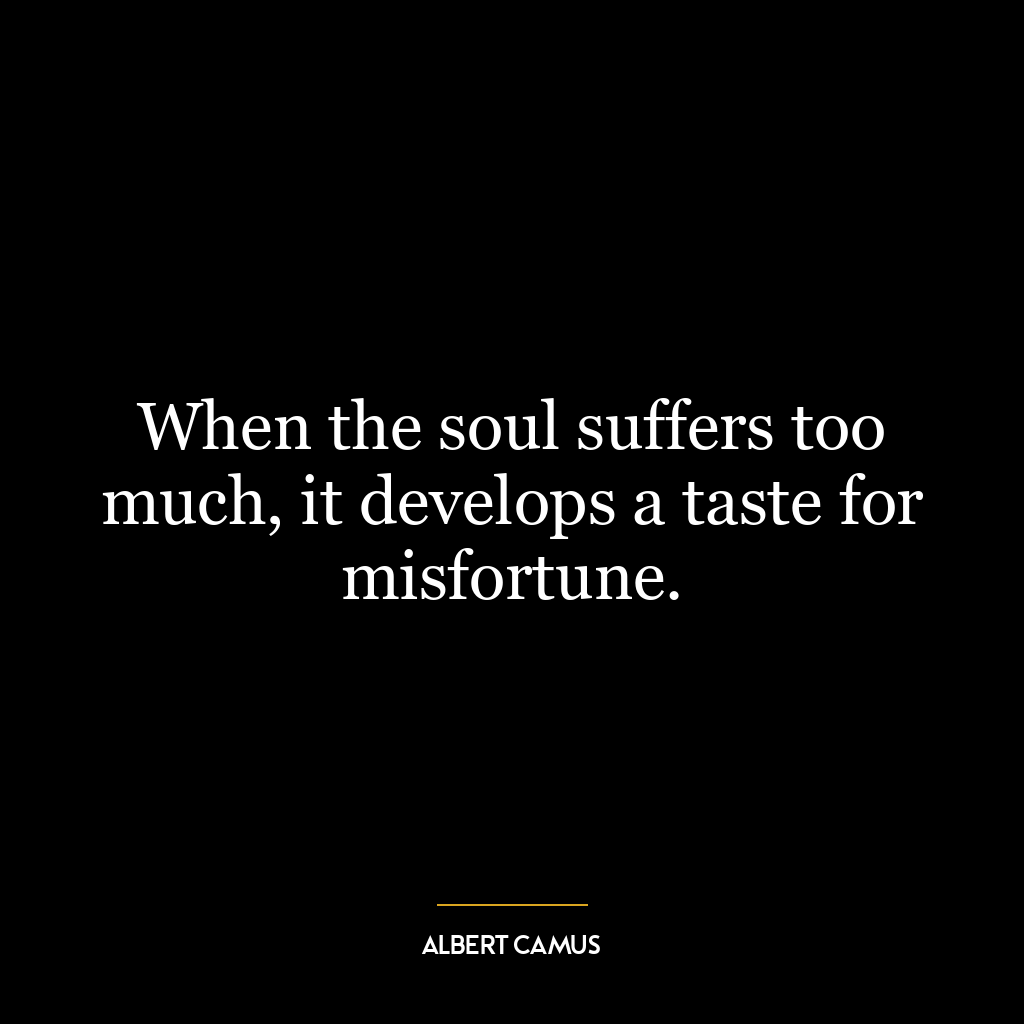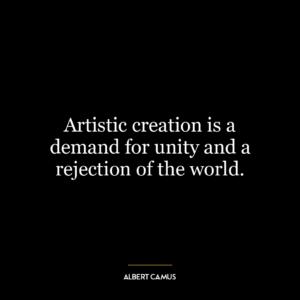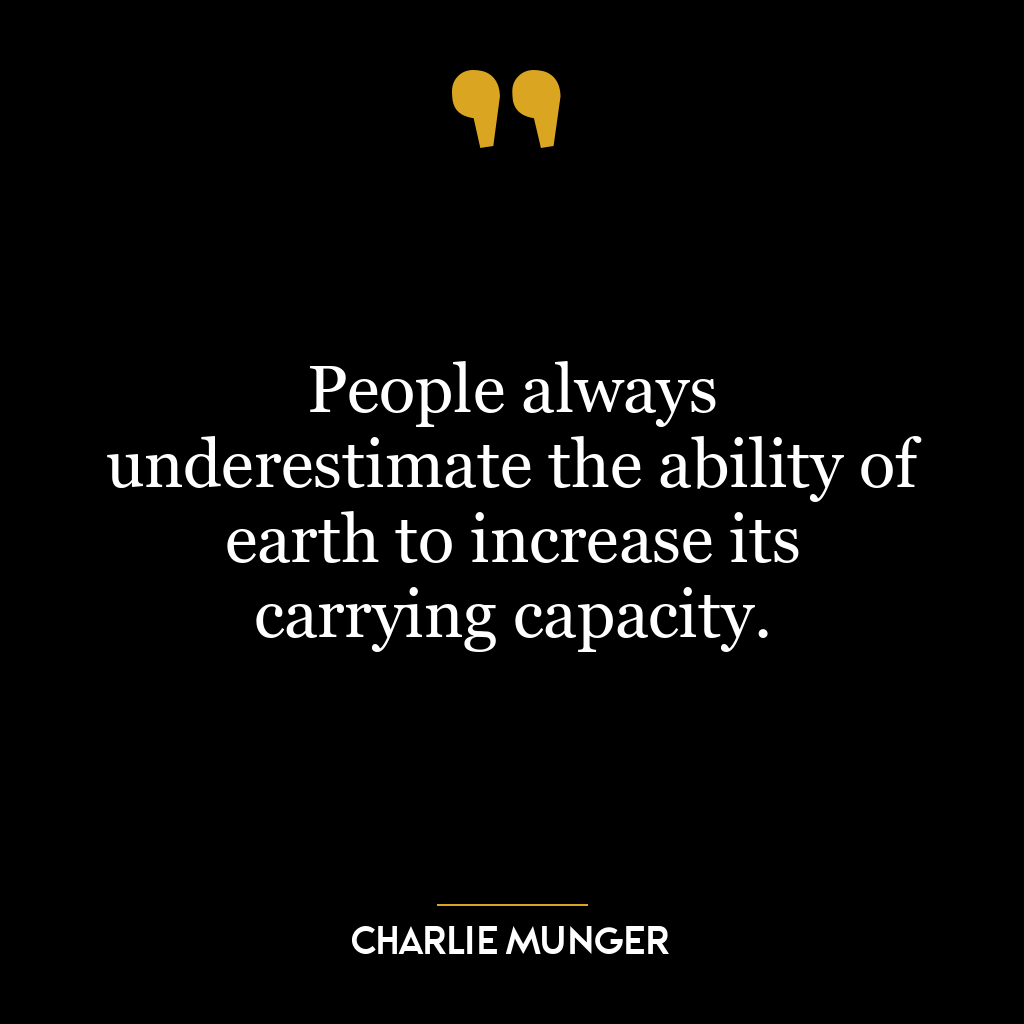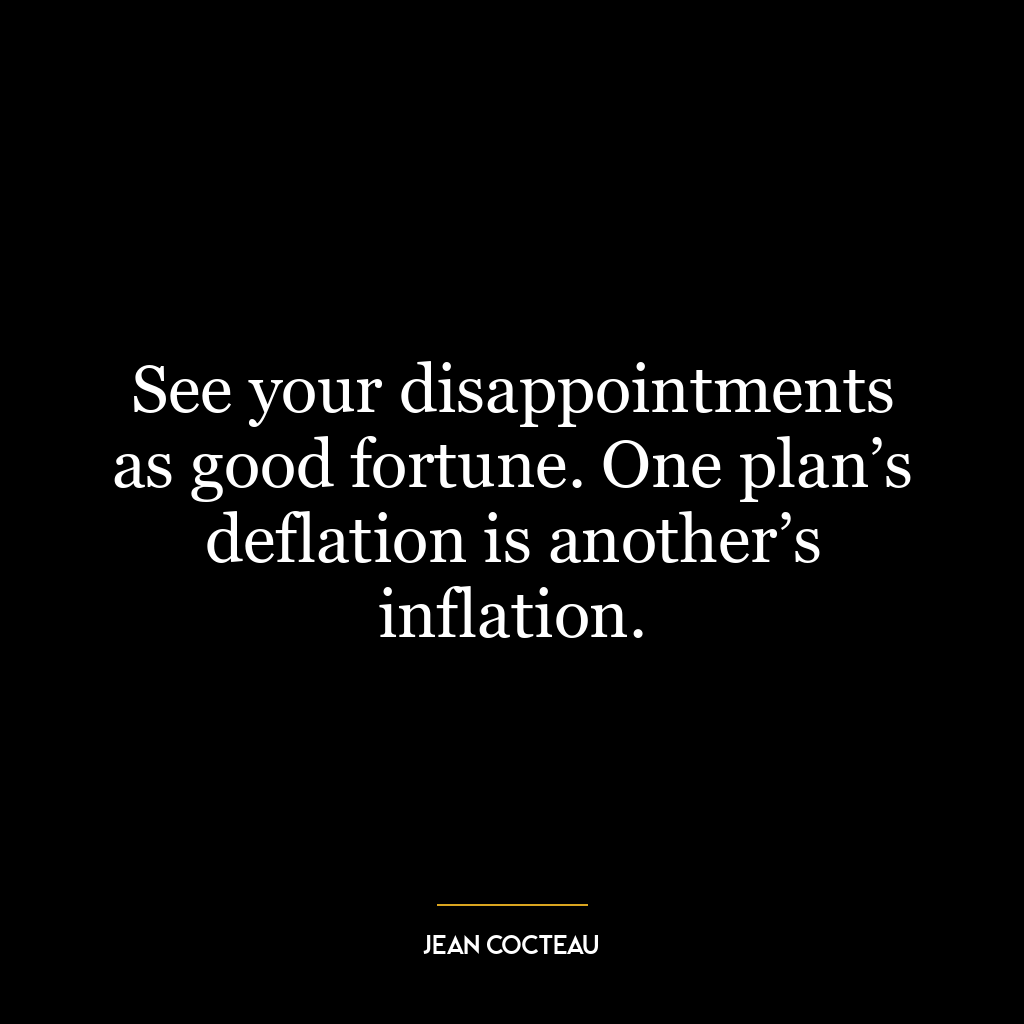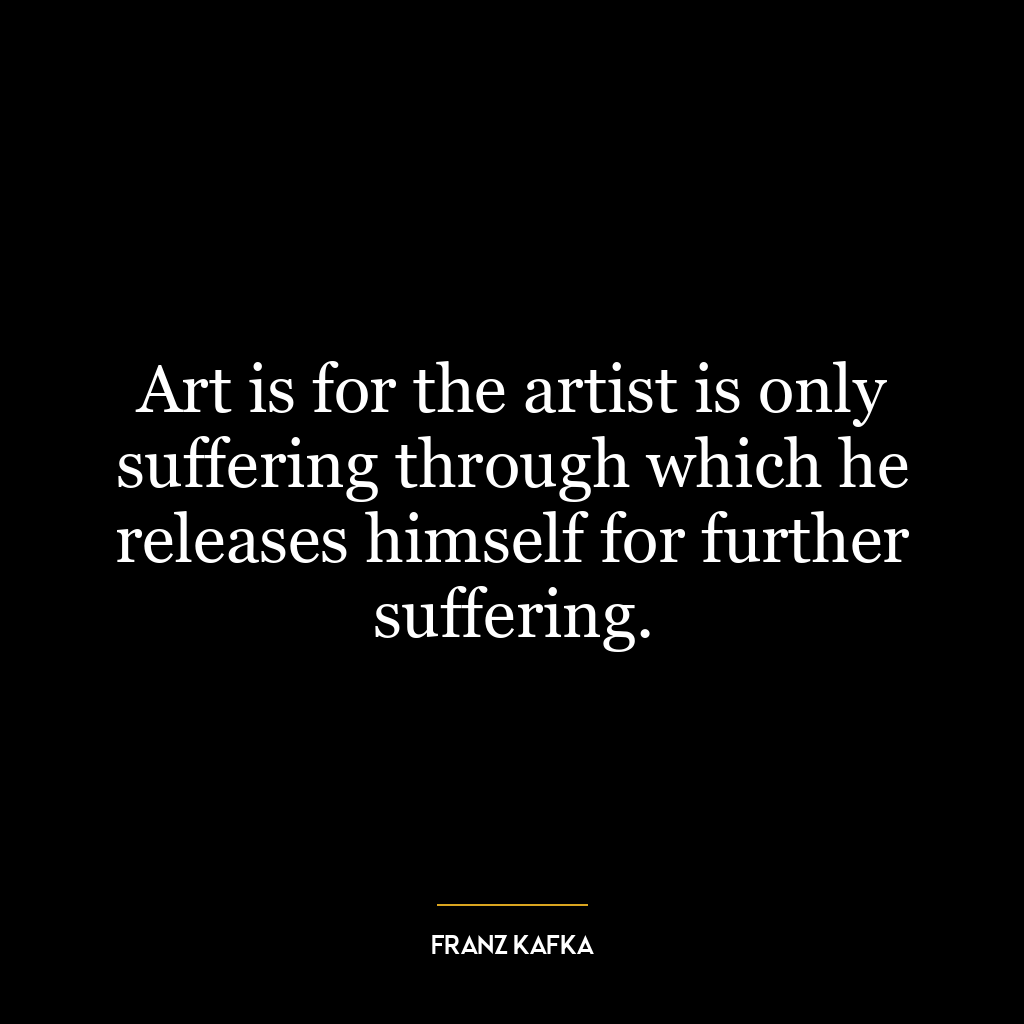When the soul suffers too much, it develops a taste for misfortune.
When the soul suffers too much, it develops a taste for misfortune” is a profound statement that delves into the human psyche’s response to prolonged suffering. Essentially, it suggests that when a person endures an excessive amount of pain or hardship, they may begin to become accustomed to it, even developing a kind of preference for it. This is not because they enjoy the suffering, but rather, they become so familiar with it that it becomes their norm, their comfort zone. They may even start to anticipate and seek out misfortune because it is what they know and understand.
This concept can be likened to the psychological phenomenon known as “learned helplessness,” where an individual subjected to repeated negative experiences believes they have no control over the situation and thus, stops trying to change it. In this state, even when opportunities for relief or change arise, they may not take them, simply because they’ve grown accustomed to their current state of suffering.
Applying this idea in today’s world, we can see it manifest in various ways. For instance, in the realm of personal development, it could be seen in an individual who has faced so much rejection or failure that they start to expect it, and even subconsciously sabotage their own efforts to avoid the pain of hope and subsequent disappointment.
In a broader societal context, it could be reflected in communities or societies that have been marred by prolonged periods of hardship, conflict, or injustice. The suffering becomes so ingrained in their collective psyche that they almost anticipate it, leading to a cycle of negativity that can be hard to break.
However, understanding this concept can also be a powerful tool for change. By recognizing this pattern, individuals and societies can actively work to break the cycle, challenge their expectations, and strive for a more positive and hopeful outlook. It can serve as a reminder that suffering does not have to be a perpetual state of being, and that change, while difficult, is possible.

